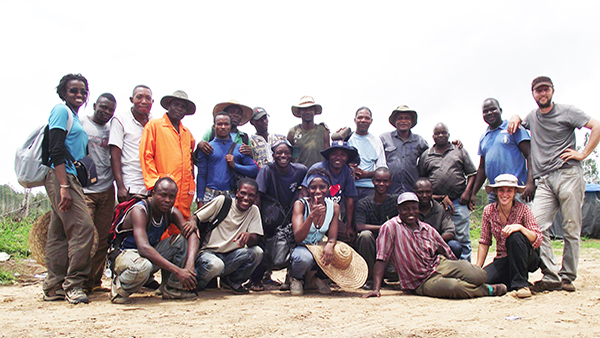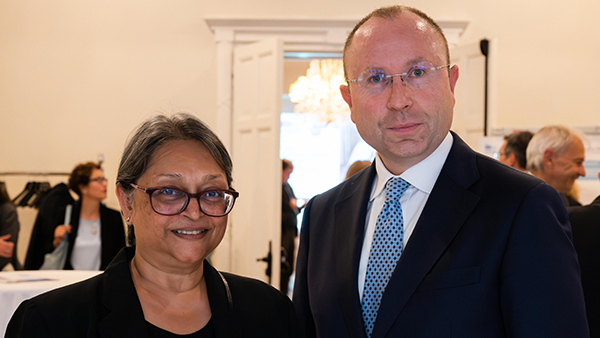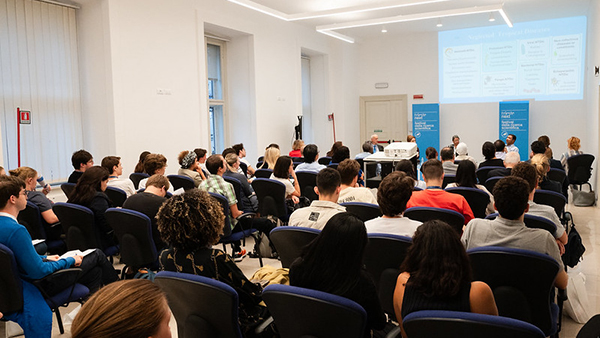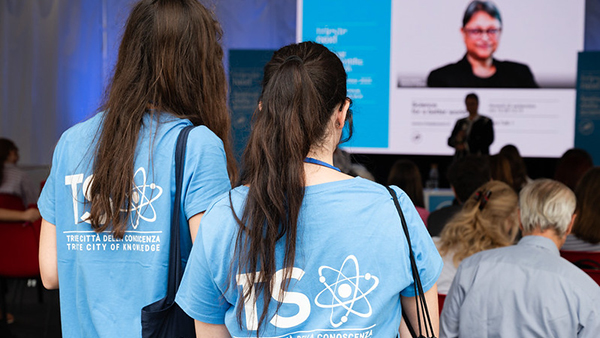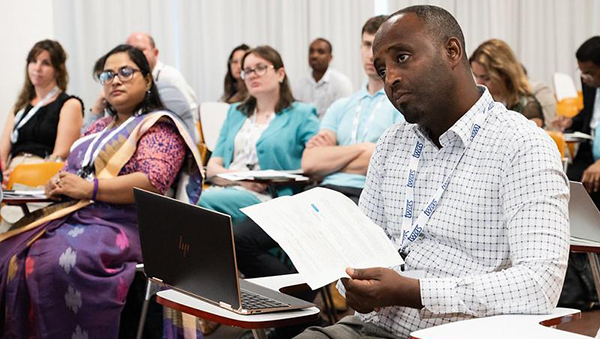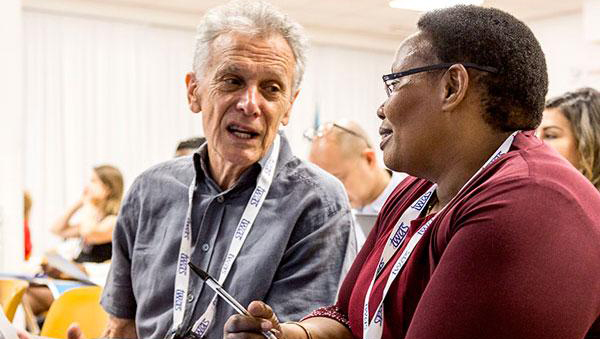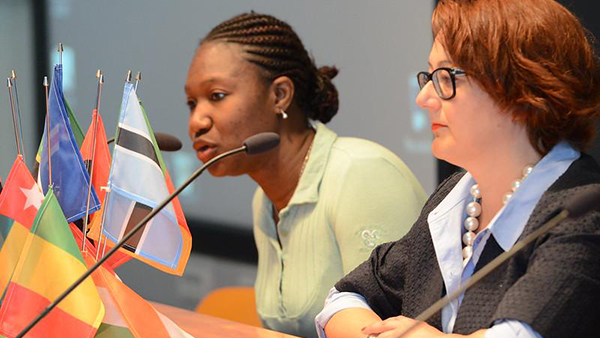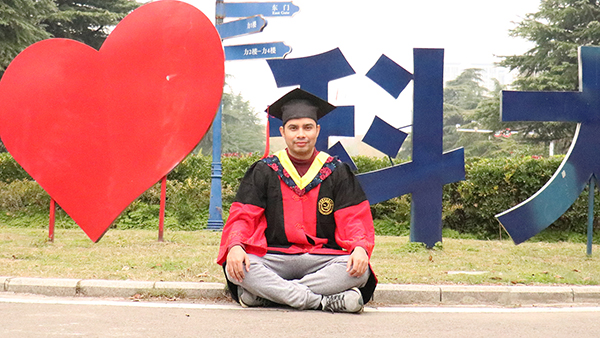|
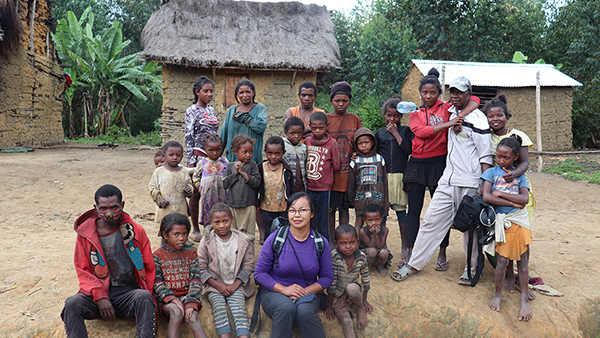 How to empower forestland peoplesForestlands threatened by development need conservation policies to survive. But for such policies to be “humane”, they must account for the livelihoods of those who live in those remote areas, according to Malagasy socio-economist Sarobidy Rakotonarivo, the winner of the 2022 TWAS-Samira Omar Innovation for Sustainability Award. TWAS honoured her work combining research with policy engagement in Africa, including remote areas of Madagascar, Gabon and Kenya. Rakotonarivo is a TWAS Young Affiliate and a researcher at the University of Antananarivo in Madagascar. Her research focuses on remote forestland communities whose lives are deeply and directly affected by policies designed to protect natural lands, and her work helps rural people who might otherwise be ignored by such policies, advocates for their interests—and thus finds a proper balance between their well-being and the stability of nature. The TWAS-Samira Omar Award is an annual honour sponsored by TWAS Fellow Samira Omar Asem of Kuwait, and carries a cash award of US$4,000. The prize honours scientists from Least Developed Countries who are working in a field tied to sustainability. Rakotonarivo is the sixth winner of the award, and past winners have been from Benin, Ethiopia, Sudan, Togo, and Uganda.
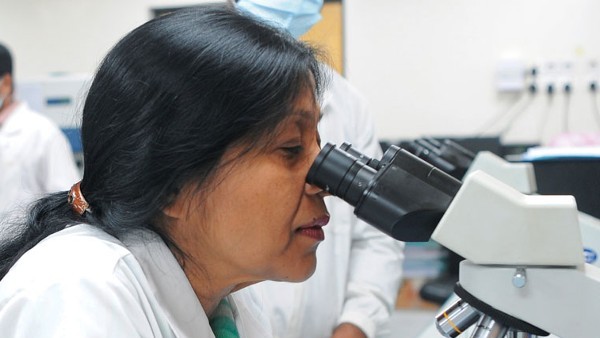 Advancing tuberculosis care in BangladeshDespite a reduction in the number of people with tuberculosis (TB) registered between 2019 and 2020, Bangladesh is still a country where the disease is a major burden, accounting for 3.6% of the global total, according to the 2022 World Health Organization Global Tuberculosis Report.
Sayera Banu is a senior scientist and heads the Programme for Emerging Infections at the Infectious Diseases Division at icddr,b in Dhaka, Bangladesh—and she has been carrying out extensive studies on TB since 2001, with strong results. In fact, she innovated new techniques to isolate the TB-causing organism (Mycobacterium tuberculosis) and to contain antimicrobial resistance, which is currently a public health issue worldwide.
For her ground-breaking research on TB and its effective translation into policy and practice, TWAS bestowed on her the 2022 TWAS-Fayzah M. Al-Kharafi Award.
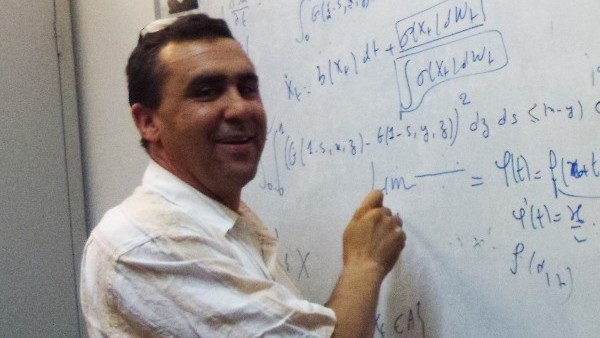 The maths behind the modelsKhalil Ezzinbi, a Moroccan mathematician who specializes in work important to reducing the complexity of systems analyzed by computer models, is the winner of the 2022 TWAS-Mohammad A. Hamdan Award.
Ezzinbi is based at Cadi Ayyad University, Marrakech, Morocco. He was honoured for his contributions to the development of new methods for solving complex equations useful for systems modeling.
The award, named for the late TWAS Vice-President of the Arab Region, is given every two years. It recognizes outstanding mathematical work by a scientist living and working in Africa or the Arab Region, and comes with a US$5,000 prize.
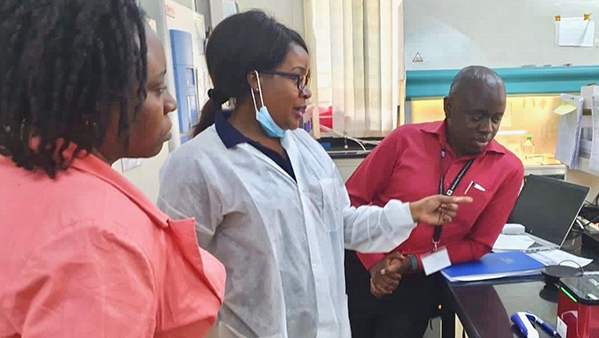 HIV: the burden of diseaseDespite progress in research and therapy, infections caused by HIV are still a global public health issue. At the end of 2021, an estimated 38.4 million people were living with HIV; roughly two thirds of them are in the WHO African Region. And about 1.4 million of them live in Uganda. Damalie Nakanjako is a Ugandan physician with 22 years of experience in infectious diseases care and Principal of the College of Health Sciences, at Makerere University, in Kampala, Uganda. She devoted her career to fighting HIV and other major diseases, such as tuberculosis. Her research is now paving the way for reducing the HIV burden in Uganda. In 2022, she received the TWAS-Abdool Karim Award, which honours women scientists in low-income African countries for their achievements in biological sciences. Nakanjako conducts clinical research on the mechanisms of immune activation, inflammation, and recovery of immunity during chronic HIV infection. This work is improving how much access people have to HIV diagnoses, and help managing tuberculosis-HIV co-infections.
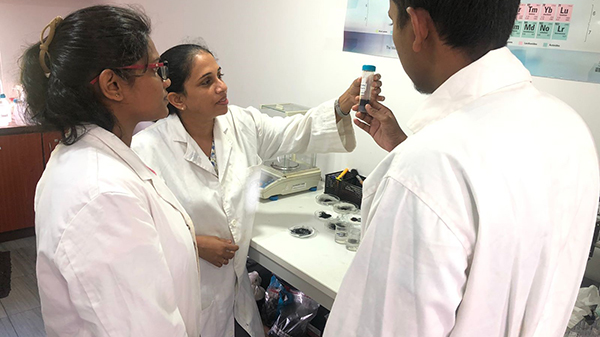 Protecting soil and water from contamination through biochar
Sri Lanka has some difficult environmental problems that are common throughout the world, including wide-spread dumping sites, and pollution that contaminates agricultural soil and well water. But Anushka Rajapaksha, winner of the 2022 TWAS-Atta-ur-Rahman Award in Chemistry, is employing and improving upon one possible solution: a chemical-capturing substance called biochar.
The annual award is sponsored by Pakistani TWAS Fellow Atta-ur-Rahman, a leading scholar in the field of organic chemistry and a globally influential advocate of science education. The award, which includes a US$5,000 prize, is given to a young chemist in a scientifically lagging country and aims to inspire young researchers in these nations to pursue chemistry careers. “Winning this award is really an encouragement as an early-career researcher, and it provides international recognition for my contribution in the field of chemistry,” said Rajapaksha, who was also a recipient of a Sida-sponsored 2020 TWAS Research Grant. “Hardships offer unexpected gifts if you believe in yourself to embrace the silver linings. I’m really happy and it’s a great honor.”
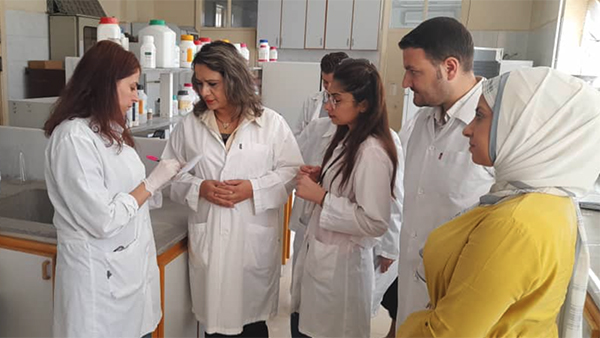 Shielding plants from stressDeforestation, livestock grazing, and urban development are major threats to native plant life in Syria. On top of that, other hazards like water pollution and climate change-driven drought deeply constrain future agricultural and economic development. For her outstanding research in response to these challenges, Syrian biotechnologist Nadia Haider won the 2022 TWAS-Fayzah M. Al-Kharafi Award. She shared the prize with Sayera Banu, the head of the Programme for Emerging Infections at the Infectious Diseases Division at the International Centre for Diarrhoeal Disease Research (icddr,b) in Dhaka, Bangladesh. Haider is a research director with the Department of Molecular Biology and Biotechnology of the Atomic Energy Commission of Syria (AECS) in Damascus, Syria. She identifies genetic variations in crops and wild plants for facilitating, accelerating and optimising conservation and crop improvement programmes that produce species tolerant to various stressors, including high salt content in the water they need to thrive.
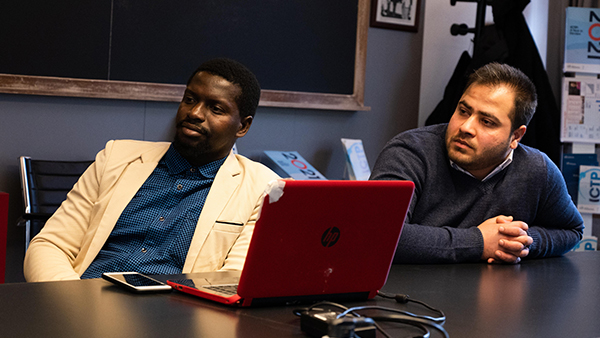 South-North exchanges shape scientific careers in the global SouthExchange visits are crucial for early-career researchers. This is the take-home message of four scientists from Least Developed Countries (LDCs) who presented their experience as fellows of a recently enacted exchange programme in Trieste, Italy. Ousman Bajinka of The Gambia, Lykeang Muk of Cambodia, Gaelle Ndayizeye of Burundi and Edrees Khan Rahmatzada of Afghanistan spent about six months in Trieste as part of PACTs (ProgrAmme of CollaboraTions with LDCs). Here, they carried out research projects at the International Centre for Genetic Engineering and Biotechnology (ICGEB). "The developing world needs science. And Trieste—with its international centres such as TWAS, ICGEB, and others—offers the perfect place to learn new skills and position early-career scientists to serve the global South," said TWAS Executive Director Romain Murenzi.
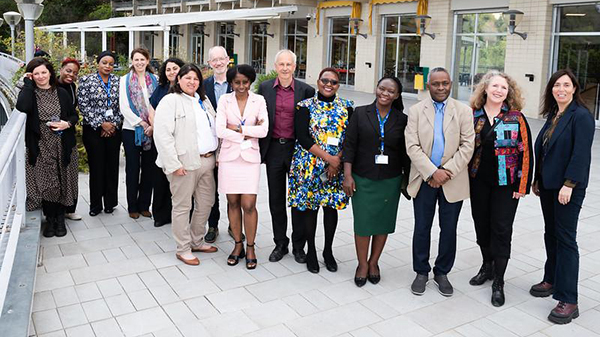 Action is key to progress on gender equity, climate crisisLeaders of teams that won first-of-their-kind TWAS-Elsevier Foundation Project Grants for Gender Equity and Climate Action assembled in Trieste, Italy, for a unique workshop. The goal was to train the leaders, all of them women, on how to ensure that their work leads to tangible, real-world outcomes.
The event, held 18–19 April 2023, included breakout groups focused on project management, communication of impact, and teamwork. The two days of activities also included high-level speakers who explained how to achieve a key sustainable development agenda item: climate action. Among them was Lučka Kajfež Bogataj of the University of Ljubljana, Slovenia, who shared the 2007 Nobel Peace Prize as part of the Intergovernmental Panel on Climate Change (IPCC).
Kajfež Bogataj gave an in-depth lecture on the current state of humanity’s response to climate change. "We can see the world is not on the right track,” she warned. “And despite the rhetoric, emissions are rising."
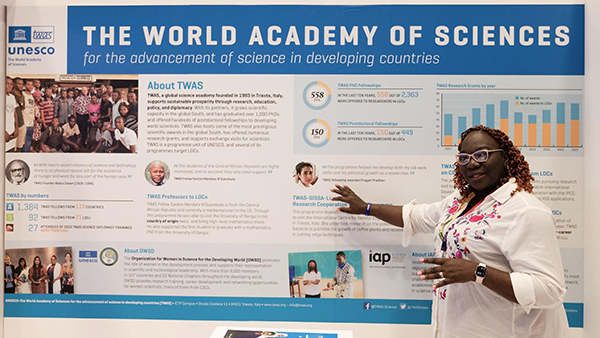 TWAS at LDC5: partnerships and education in the spotlightAs a leader in developing world science that offers support for research capacity to the Least Developed Countries, TWAS participated in high-level international discussions at The Fifth United Nations Conference on the Least Developed Countries (LDC5). LDC5 was a key opportunity for decision-makers and leading experts to shape a better future for the world’s most vulnerable nations through global partnerships. At the event, TWAS contributed expert panellists for high-level discussions, as well as an exhibition booth at the conference centre. The event took place in Doha, Qatar, from 5 to 9 March 2023.
On 7 March, TWAS Executive Director Romain Murenzi participated in a side-event called ‘Delivering on the Doha Programme of Action: Innovative partnerships for technology transfer and STI capacity development’. The event, organised by the United Nations Technology Bank for the Least Developed Countries (UNTB), emphasised the importance of partnerships promoting sustainable development in LDCs.
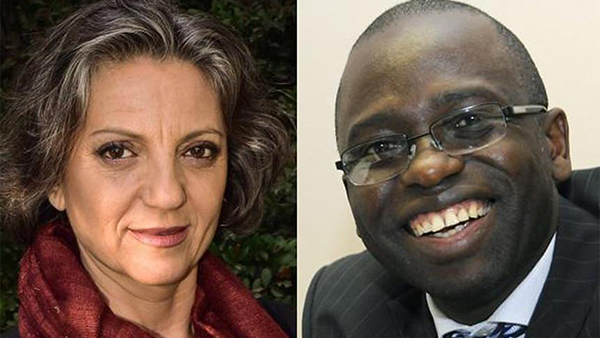 TWAS Fellows named to high-level UN Advisory BoardTwo TWAS Fellows will serve on a new Scientific Advisory Board to advise UN leaders on breakthroughs in science and technology, according to an announcement from United Nations Secretary-General António Guterres. Sandra Díaz is an ecologist at Córdoba National University in Argentina, and a senior principal investigator for the National Scientific and Technical Research Council of Argentina. Her research interest is plant functional traits and syndromes, their effects on ecosystem properties, and their interactions with global change drivers. She is a 2010 TWAS Fellow, and a current member of the TWAS Council, representing the Latin America and the Caribbean region from 2013 to 2016. She will serve on the UN board as an external member. Tshilidzi Marwala is an under-secretary-general of the UN and the rector of the United Nations University (UNU). He is also an artificial intelligence engineer, and previously held several high-level positions at the University of Johannesburg, including vice-chancellor; deputy vice-chancellor for research, postgraduate studies and the library; and dean of engineering and the built environment. He is a 2010 TWAS Fellow, and will serve on the board through his role as UNU rector. |

